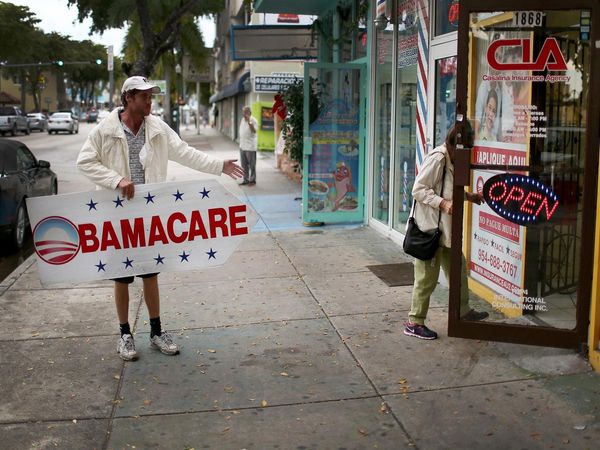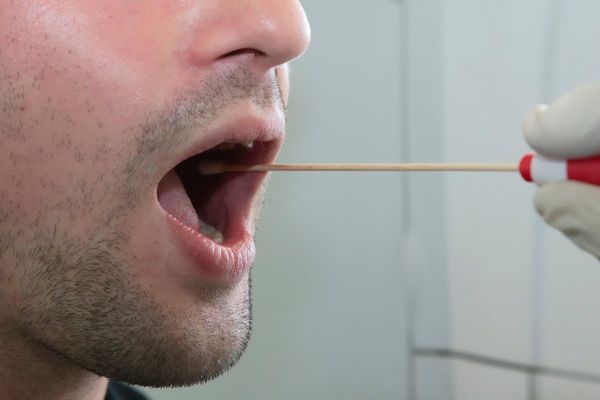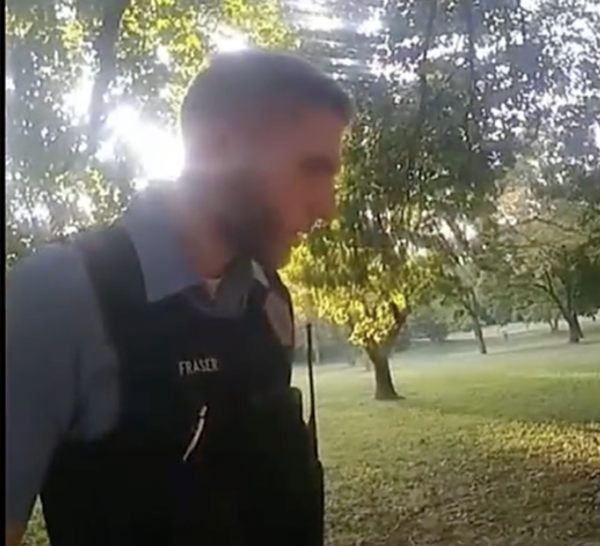
PARK HILLS, Mo. — Amber Elliott took over as director of the St. Francois County public health department in January, excited to take the position after serving five years as assistant director and a communicable disease nurse for the department.
Elliott was looking forward to tackling issues such as opioid addiction, lead poisoning and childhood trauma with her staff of nearly two dozen employees.
She did not expect that within a few months her small health department about an hour south of St. Louis would be overwhelmed with fighting a pandemic. But what has been even more surprising are the threats and harassment she and her family have faced as she works to protect her community.
"There's been many over the course of eight months, to personal attacks on Facebook calling me every name in the book, to calling me and cussing me and saying I'm stupid and I'm incompetent and I don't know what I'm doing, of course the pandemic is fake, and all those type of things," Elliott said.
People told her they were following her, that they were watching her. They took pictures of her, her husband and her two elementary school-age children in public and posted them online with remarks she doesn't want to repeat.
Citing the need to protect her children and after receiving another promising job offer as a nurse, Elliott resigned last week as director. Her last day will be Nov. 20.
"As a mom of two small children, my husband and I have to always remember that they come first, and it's unfortunate that my job serving the public has affected them so profoundly," she said in an interview Thursday. "It's a red flag. My No. 1 job is to be a mom, and so I have to really think about that."
Elliott's is the 12th local health department director position in Missouri that has been vacated since the pandemic hit in March, according to Kelley Vollmar, chair of the Missouri Association of Local Public Health Agencies. Though reasons for the resignations or replacements are not always clear.
Health department directors lost over the past two months as coronavirus cases and hospitalizations surged across Missouri include those in Howard, Washington, Ste. Genevieve and Audrain counties. Many are women.
"It's a common feeling among directors," Vollmar said. "They are tired. They are trying to stand strong, and stand up for their staff, but we are mothers and children and sisters first, and those family relationships you have to make sure are kept safe. It's been challenging."
Vollmar, also the director of the Jefferson County Health Department, said health departments are seeing staff members retire early because of the stress and verbal attacks. Those jobs are now difficult to fill, she said.
Vollmar said she has experienced harassment being a director as well. As a domestic violence survivor, she had worked to keep the location of her home private, but people searched her tax records, divorce records, committees she's served on and posted information online to determine where she lived, she said.
People threatened to protest in front of her home, but decided otherwise after learning she had children, she said.
A gun shop owner in the county uses his Facebook page to attack her credibility, warning that gun owners will "decide they've had enough of the lies." Someone, she said, called her husband saying she was out with another man. People posted pictures of her on social media, altered to make her look like Adolf Hitler or comparing the health department to Nazis.

"It's just demoralizing after a while because of the simple fact that you are trying to do the right thing," Vollmar said. "You're trying to help people and at the same time, you are trying to protect your family and protect your personal life."
The coronavirus pandemic, instead of unifying the country behind scientific and public health experts, has instead contributed to worsening political divides leading up to Tuesday's election.
Partisan affiliation has become the strongest predictor of attitudes toward public health measures such as mask-wearing, social distancing and stay-home orders — messages delivered by local health department directors.
"The target has been pretty significantly on my back and at times the board of health's back," Elliott said. St. Francois County passed a mask mandate last month, but the board let it expire Oct. 22 after uproar over the measure.
Elliott's experience is the latest example of how this politicization of the pandemic response has become dangerous for government and health officials across the country.
In early August, a review by Kaiser Health News and the Associated Press found at least 49 state and local health leaders had resigned, retired or been fired since April across 23 states. They have left their posts due to a mix of backlash and stressful, nonstop working conditions such as staffing and funding shortages.
They included Ohio's state health director, who had armed protesters come to her house, and the health officer for Orange County, California, who quit after weeks of criticism and personal threats from residents and other public officials over an order requiring face coverings in public.
This month, 14 people were charged in an alleged domestic terrorism plot to kidnap Democratic Gov. Gretchen Whitmer, motivated by a belief that measures she imposed on business and residents to slow the spread of the coronavirus made her a "tyrant" who was violating the Constitution.
Even the nation's top infectious disease expert, Dr. Anthony Fauci, director of the National Institute of Allergy and Infectious Disease, has required a security detail since April because of death threats over his response to the COVID-19 pandemic. His wife and children have also faced harassment.
"That's sad," he said in a recent interview on "60 Minutes."
"The fact that a public health message to save lives triggers such venom and animosity to me that it results in real and credible threats to my life and my safety."
After the first coronavirus case was reported in St. Francois County on March 22, suddenly the little-thought-of health department — that, like many others across the country, had been struggling for years with few staffers — was needed by everyone in the community, Elliott said.
She worked 10 to 12 hours a day for 90 days in a row. But she could handle that, she said. She could handle people disobeying expert advice. That on top of the harassment, however, left her with no other choice.
"My son has expressed to me a couple times that he is scared or he thinks that someone might try to hurt me or hurt them which is not OK," she said. "That is not OK."







